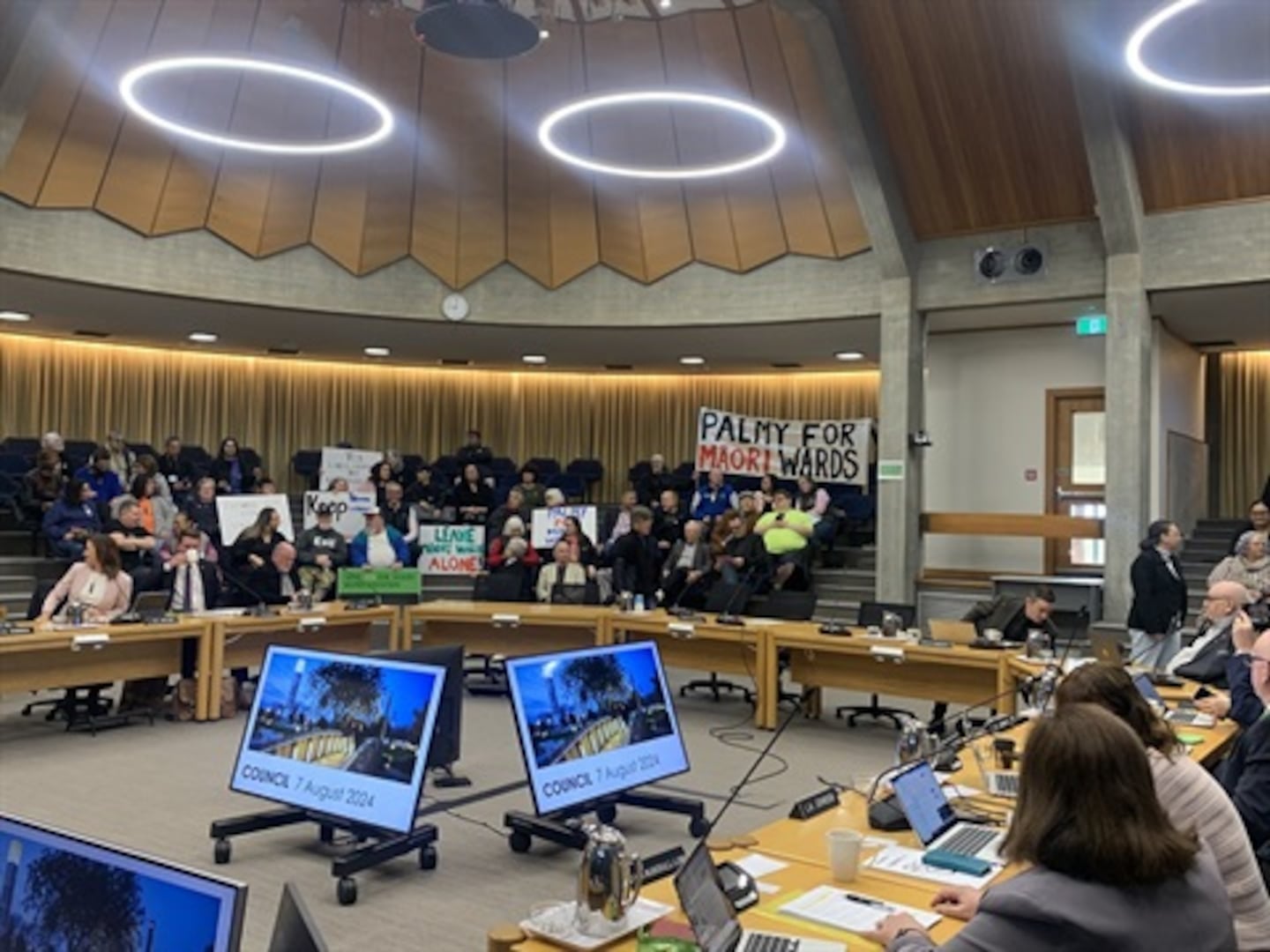EXPLAINER: Just two councils voted to remove Māori wards after the Government passed law adding new hurdles for councils wanting to ensure Māori representation.
Councils had a deadline of Friday to decide whether to remove their Māori wards, after the Government passed legislation forcing councils to remove Māori wards or hold a binding referendum about their existence.
Just two of the 45 councils that had installed Māori seats since 2020 have decided to remove them, thereby avoiding that referendum. The debates in council chambers about this topic have been highly emotive, drawing protests for those that voted to remove them and passionate speeches about the place of Te Tiriti o Waitangi in local government.
The outcomes of these votes show a growing division between local and central government.
Not only have almost all impacted councils voted to retain their Māori wards, some of them say they want to ignore the Government’s demand to hold referenda. Some councils, such as Palmerston North City Council, are seeking legal advice about what would happen if they refuse to hold a referendum about their Māori wards.
What is a Māori ward?
Māori wards are the local government equivalent of Māori electorates, which allow voters on the Māori roll to elect representatives.
Instead of voting in a general ward, people on the Māori Electoral Roll vote in the Māori ward for councils that have Māori seats.
Māori wards and Māori seats do not give Māori an extra vote.
What has the Government changed?
In 2020, the Labour government made it easier for councils to install Māori ward options. It meant that once a ward was established, councils did not need to continually re-ask whether the ward should exist through a citizens-initiated referendum. Those had been costly, and required only 5% support from voters.
At the end of July, the National-led Government repealed that change. It said any council that had started a Māori ward since 2020, all 45 of them, must hold a referendum or remove those wards.
Why are councils angry?
Many councillors believe a referendum will be a waste of money. And councils must pick up the bill for those referendums.
In Wellington, Mayor Tory Whanau said it was expected to cost $160,000.
“I am confident Wellington will vote for our Māori ward, given we had 94% support during consultation,” she said.
For smaller councils, such as South Wairarapa, the referendum was expected to cost $35,000 next year. That’s about $3 per resident.
While the Government said its law change was about restoring democracy, councillors opposed to it said it was ignoring their own local democratic mandates.
Palmerston North Mayor Grant Smith voted unanimously with all councillors in supporting the city’s Māori ward. He said it had never been an issue, and was only attracting controversy because of the central Government.
“We want to retain our Māori ward as it works for us,” he said.
“Palmy City is different and is more liberal than other parts of regional New Zealand. We have a 150-plus year relationship with Rangitāne Iwi and nearly 20% of our population is Māori. We are more accepting, diverse and multicultural than most regional cities.”
Whanau argued the debate about Māori wards, which would come at next year’s Government-mandated referendums, would be divisive.
“Groups like Hobson’s Pledge and others peddling misinformation could use it to create a divide,” she said.
Why does the Government want referendums?
Local Government Minister Simeon Brown said the 43 councils which voted to support their Māori wards must hold public referendums.
“A key principle of localism is ensuring that local people have their say if councils want to introduce or retain Māori wards,” he said.
In an earlier interview, he told Stuff the cost of 2025’s referendums was “the cost of democracy”.
What about democracy?
Labour local government spokesperson Kieran McAnulty said it was “plain wrong” to say the Māori wards law was about restoring democracy.
“If the Government were truly concerned about ‘one person one vote’, it would change the rules so that people who own multiple homes don’t get to vote more than once, but it’s not. Or it would require a referendum on all types of wards. All it’s focused on is having a go at Māori,” he said.
Some councils have other demographic wards, such as rural and urban seats - to ensure those communities are represented on councils.
Green Party Māori development spokesperson Hūhana Lyndon said the focus only on Māori wards was “racist” and would lead to an ugly 2025 local election season.
“The Government is clearly out of touch with where local government is at,” she said.
“The coalition’s law change to require councils to either disestablish their Māori wards or agree to a binding poll is simply wasteful, racist and an overreach into the business of local authorities.”
When asked earlier, Prime Minister Christopher Luxon said the Government wasn’t actively looking to change other aspects of local democracy.
- Stuff


